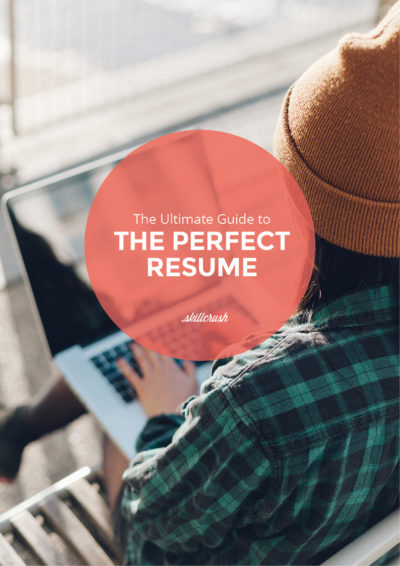
Get Our FREE Guide to the Perfect Resume
Learn how to write resumes that get you HIRED with our FREE, 30+ page ebook.
A version of this article was published on FairyGodBoss.
Though fewer companies require cover letters nowadays, it doesn’t mean you’re off the hook when it comes to writing one.
While resumes function as a list of someone’s qualifications, cover letters humanize candidates, and paint a clearer picture of who they are. As a result, hiring managers still use them to glean insight into a candidate’s personality, ability to communicate, and potential cultural fit at a new company.
But how do you know what tone to strike in your cover letter? How do you draw the line between professionalism and showing character? How do you know when to crack a joke and when to use more formal language?
To show companies you’re the right candidate for the job, here’s how to tailor the content of your cover letter so that it speaks to each company you apply to.
1. Consider the industry
Howard Davies, resume writer at Resume Writer Direct, points out that job candidates should factor in the nature of their chosen industry before drafting their cover letter. According to Davies, “online startups, software and technology companies, and even smaller scale non-profit organizations often prefer a less formal, more personal style of writing in a cover letter.” For a more bureaucratic company like a public agency, go with a more professional tone.
Entrepreneurial work cultures may invite you to get more lively and descriptive with your cover letters, giving you room to share a memorable anecdote or two. However, corporations in finance, banking, and law generally prefer candidates to be more straightforward about their credentials and past work experience.
2. Get acquainted with the company’s culture
Industry aside, it’s wise to familiarize yourself with the company you’re applying to in order to pinpoint the exact tone your cover letter should take. You can do this by “reading posts on the company’s blog, scanning their social media profiles, and listening to interviews with their employees,” says Austin Belcak, founder of Cultivated Culture.
To go the extra mile on company research, try scanning Glassdoor’s employee reviews for insight on what their workplace is like. Even better, if you have a contact at the company, consider reaching out to them for a coffee or email chat, to better understand the work environment and culture.
Otherwise, a company’s hiring page and the posted job description may clue you in, as a brief profile of the qualities they are looking for in an ideal candidate is often provided. Straightforward, more prosaic descriptions may call for more formal cover letters, while colorful descriptions that emphasize innovative workspaces give you a pass for creativity in your cv.
3. Remember that being formal doesn’t mean being boring
Of course, formal doesn’t mean stiff. Career coach Pauline Delaney from Resume Genius notes that it’s possible to maintain a formal and respectful tone while conveying character through more creative wording.“You can make your cover letter professional but still distinctive by sprucing up your vocabulary,” Delaney advises.
Using vivid and descriptive verbs will make a stronger impression on employers than the generic “achieved” and “succeeded at.” For instance, explaining how you “spearheaded” a large project sounds far more compelling than simply working on one.
4. Avoid emojis, slang, and textspeak
Even if you’re picking up hints that the company you’re applying to has a more casual and laid-back work atmosphere, don’t throw proper syntax, grammar, and punctuation out the window. Remember, your cover letter is supposed to show how good you are at written communication. Using emojis, slang, and textspeak in your cover letter doesn’t come across as charming or edgy—it says just the opposite. Including these lazy options suggests that you don’t take the job application seriously.
5. When in doubt, err on the side of formality
No luck figuring out your target company’s culture? If company research doesn’t tell you much, it’s better to play it safe with a more formal tone. Don’t strive to be clever or entertaining (though that would certainly help make for a viral Internet post). Instead, opt for a more straightforward way of communicating your strengths.
A successful cover letter ultimately not only convinces hiring managers of your qualifications but also shows that you’ll mesh well with your potential colleagues and execs. Be friendly, but don’t go overboard and you’ll be hired in no time!

Get Our FREE Guide to the Perfect Resume
Learn how to write resumes that get you HIRED with our FREE, 30+ page ebook.
![10 Best WordPress Black Friday Deals 2025 [Up to 90% OFF]](https://wiredgorilla.com/wp-content/uploads/2025/01/Affiliate-Program-and-Recurring-Income-fastdot-768x356.jpg)
